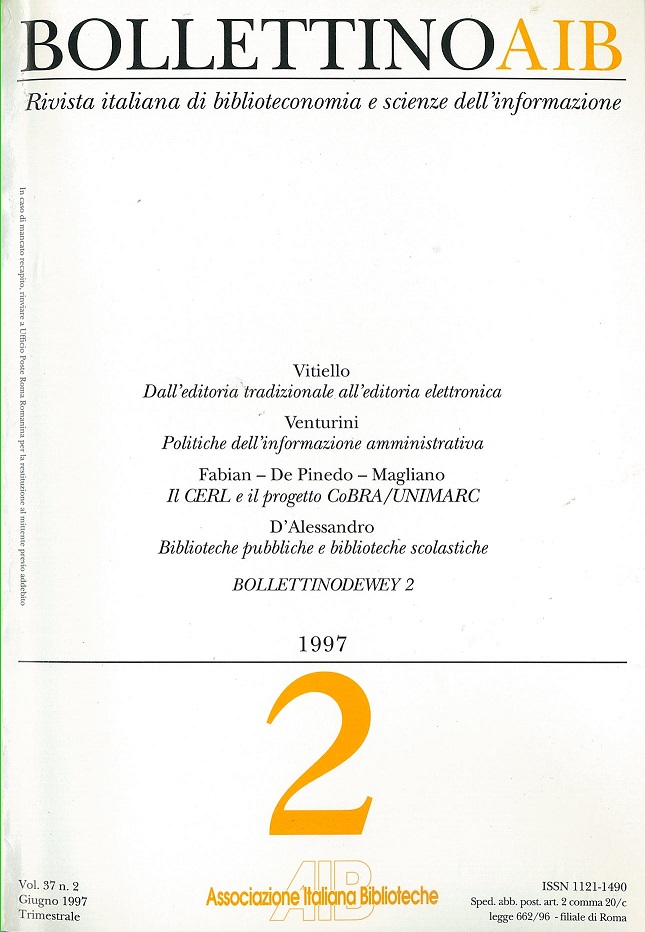The Consortium of European Research Libraries and the European project CoBRA/U
Main Article Content
Abstract
The Consortium of European Research Libraries (CERL) was created in order to finance a feasibility study for a European database of hand-printed books (1450-1830), named HPB (Hand Press Book). Born in 1991 in the form of a temporary association, it was transformed into a consortium in 1994. It is a not-for-profit organization, financed by the participating institutions for a three year period, renewable on term. It was found in the United Kingdom: presently, 30 effective members and 19 associate members participate in it.
The database is hosted by the Research Libraries Group in California. The principal aim of the project is to promote, in Europe and elsewhere, the documentation, preservation and promotion of the European cultural heritage. Moreover, the projects aims at stimulating research and retroconversion, making available high quality records to librarians, scholars and general users, in Europe and all over the world.
During 1995 the Consortium developed guidelines for the uploading of the partners' files in the hosting database. The exchange format used was UNIMARC; therefore a conversion from UNIMARC to USMARC (the format used by RLIN) was necessary,
Since January 1996, the first file, supplied by the Bayerische Staatsbibliothek of München and including 526.000 records of antiquarian books (years 1501-1840), is available online and can be searched by the members of the Consortium. At mid-1997 the files of the Royal Library of Stockholm (40.000 records), of the National University Library of Zagreb (2000 records) and of the Italian SBN network will be available too.
The project CERL/HPB constituted the base of a feasibility study financed by the Framework Programme for scientific and technological research of the European Commission: the PROLIB/CoBRA UNIMARC.
The aim of this study was to identify variations in the use of UNIMARC data elements and to analyse inconsistencies after the merging of bibliographic records coming from different sources.
The Italian national bibliographic centre (ICCU, Istituto centrale per il catalogo unico delle biblioteche italiane e per le informazioni bibliografiche) participated in the European project, with the other five institutions.
Article Details

This work is licensed under a Creative Commons Attribution-ShareAlike 4.0 International License.
